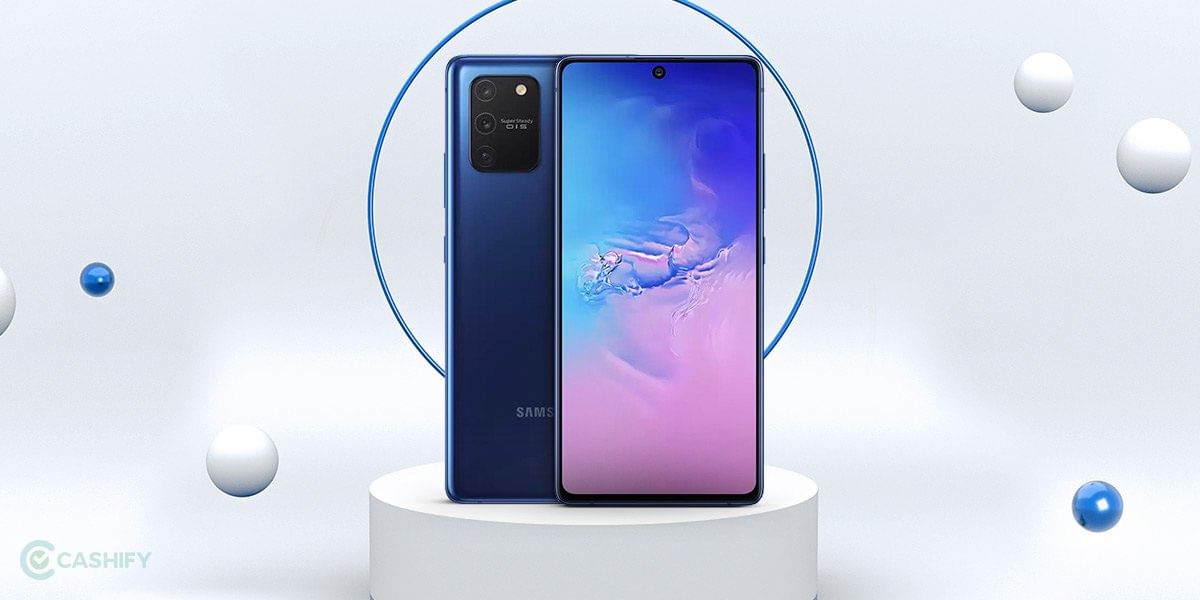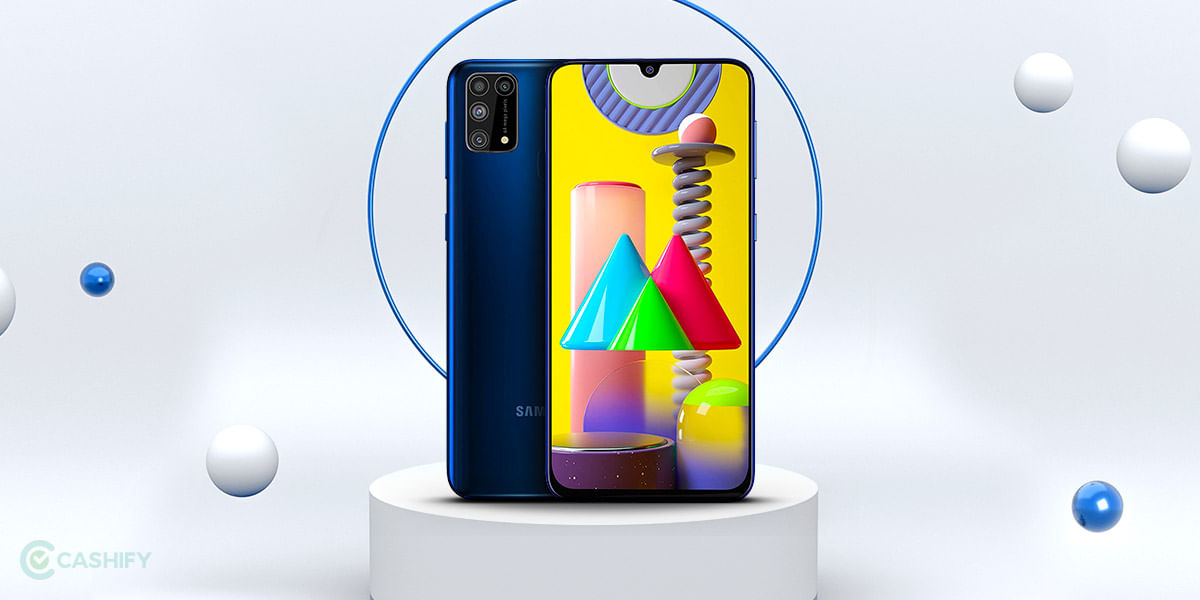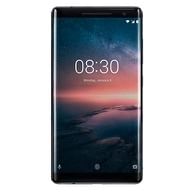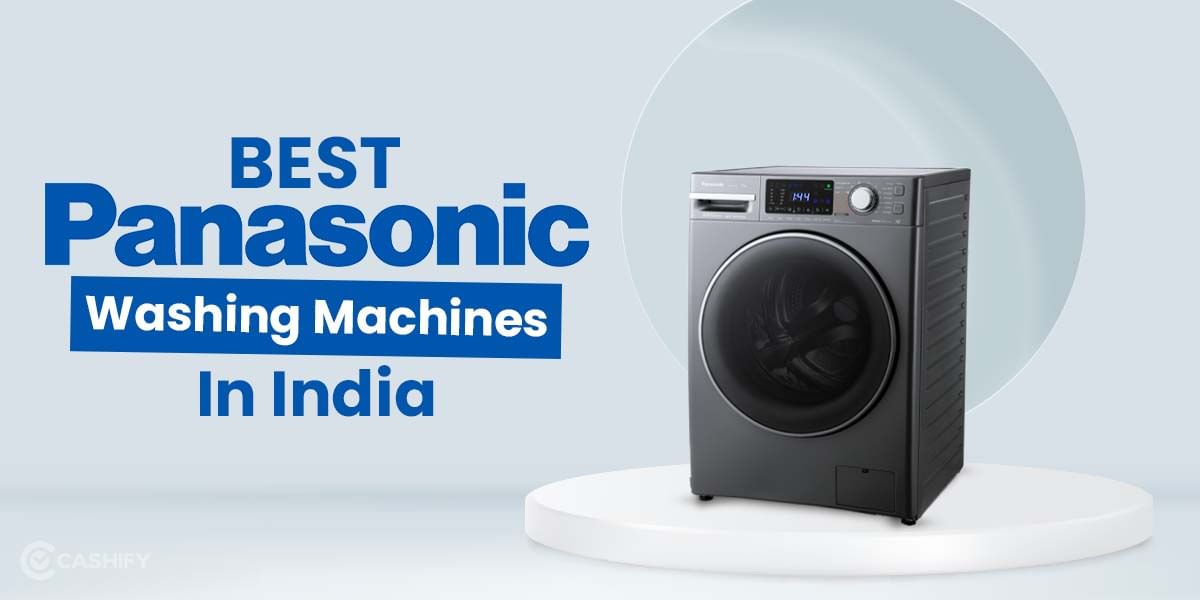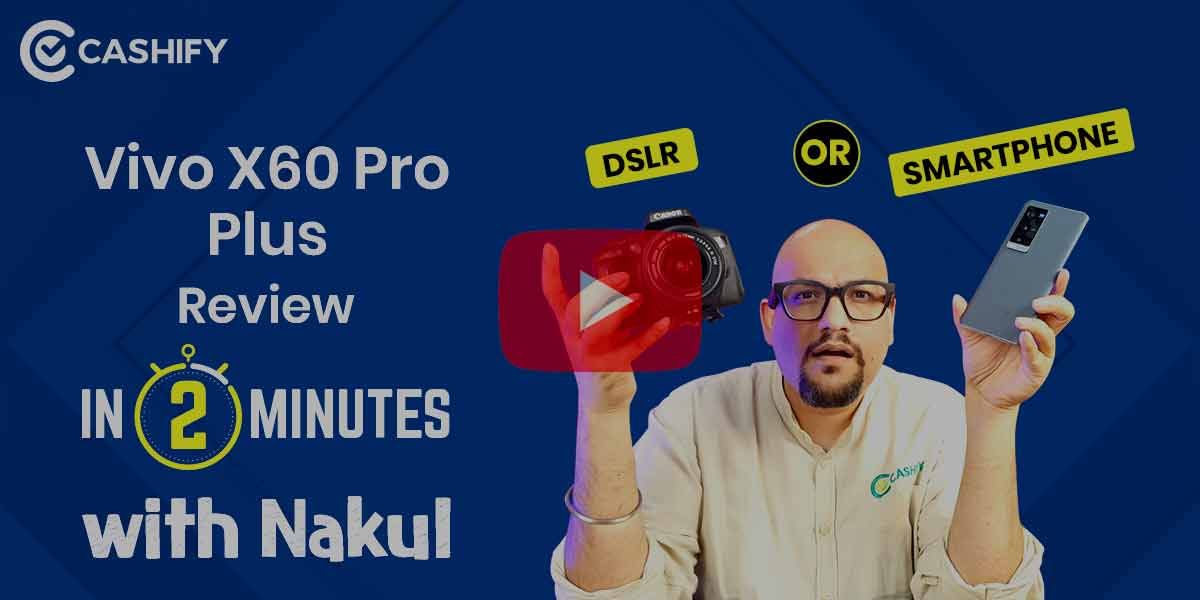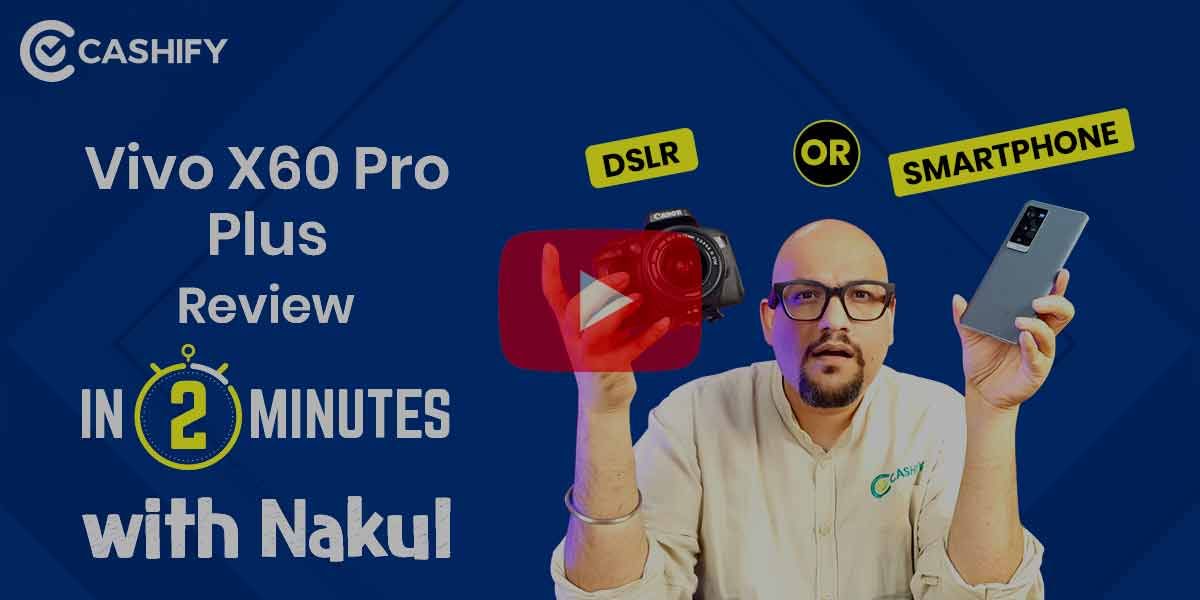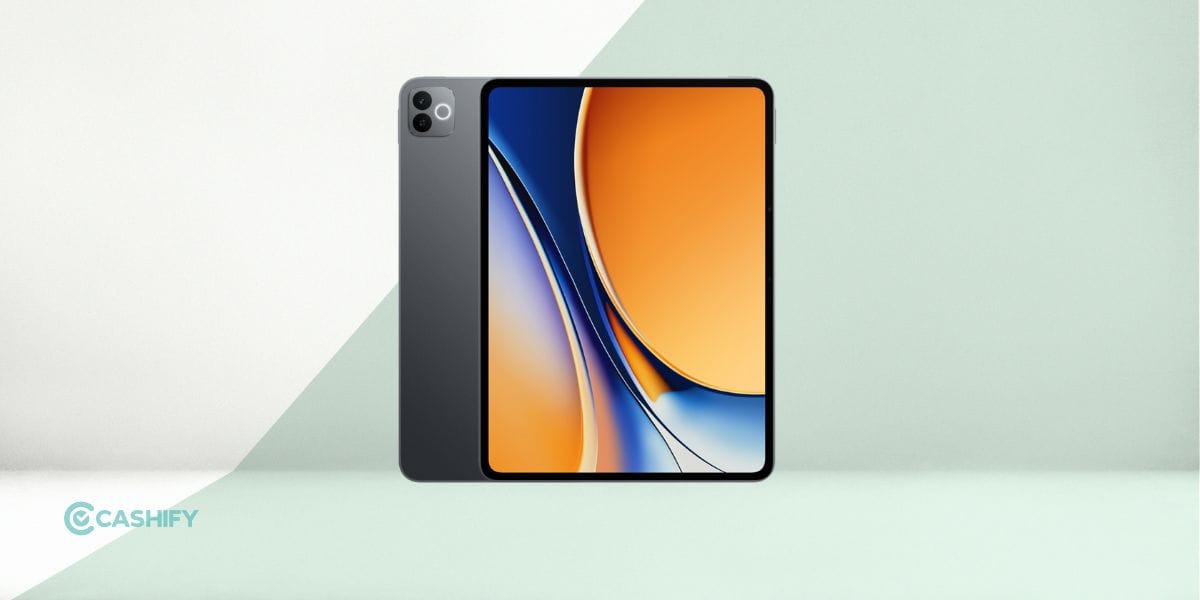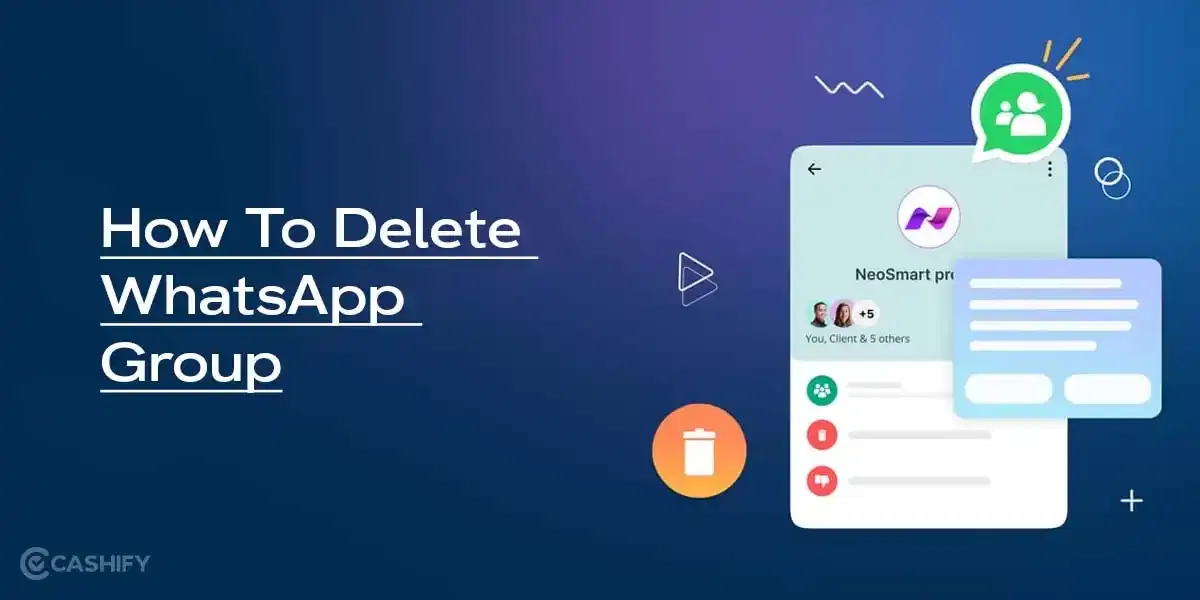Introduction
After a couple of phones populating the budget and even premium mid-range smartphones, Nokia made a splash with flagship Nokia 8, HMD Global which now owns Nokia, launched yet another update, i.e. Nokia 8 Sirocco earlier in April 2018. The phone does have a lot on board, including an all-glass body and IP67 water-resistant rating and powerful Snapdragon 835 SoC which is in-line with many smartphones launched in 2018. However, the flagship chipset was Snapdragon 845.
The phone brings a mighty 12+12MP dual camera setup instead of relying on a 13MP plus monochrome sensor at the back that was mounted on the Nokia 8. The company also made room for Nokia 8 Sirocco’s larger battery size of 3,260 mAh at the cost of a MicroSD slot which is also larger than the non-Sirocco model. The flagship phone with the right specs at the wrong price is a mighty phone to buy so here’s everything you need to know in this in-depth review. This should be enough to gauge whether or not you should go for it or not.
Also read: Best mobile phones under 30000
Prices, Variants, and Availability
Talking about the phone’s price, it is around Rs 22,999/- on Flipkart for its single 6GB+128GB variant. The device is available in a single color variant as well i.e. black. On purchase via Flipkart, you can get handsome discounts such as 5% unlimited cash back on Flipkart Axis Bank Credit Card or 5% off on Axis Bank Buzz Credit Card. The device is also available with both EMI and No Cost EMI offers from selected banks.
Box Contents
Nokia 8 Sirocco retail box contains a lot of accessories on board starting with the phone first, protective case that fits snuggly, a power adapter with Type-C USB cable, a Type-C to Type-A cable, SIM card ejector tool, and finally, a quick start guide for the device.
Sepcifications
Nokia 8 Sirocco was launched in 2018 and it features the flagship processor i.e. Qualcomm Snapdragon 835 made on a 10nm processor. Although it is not a Snapdragon 845, it is somewhat the same and can handle anything you throw at it.
It is an octa-core process which includes 4×2.5 GHz high-performance cores and 4×1.8 GHz low-powered cores. The phone has an Adreno 540 graphics unit onboard along with 6GB RAM and 128GB of internal storage. The only thing that bugs me is that there’s no expandable card slot so you are stuck with 128GB of storage.
The phone has all the sensors such as a barometer, compass, proximity, gyroscope, accelerometer, support to three satellite navigation systems, i.e. A-GPS, BDS, and GLONASS, Bluetooth 5.0, and dual-band Wi-Fi 802.11 a/b/g/n/ac and has a Wi-Fi Direct feature built-in as well.
The phone has IP67 water and dust resistant which is an upgrade from IP54 you would find on Nokia 8.
Also read: New Smartphone Launches
Design and Build Quality
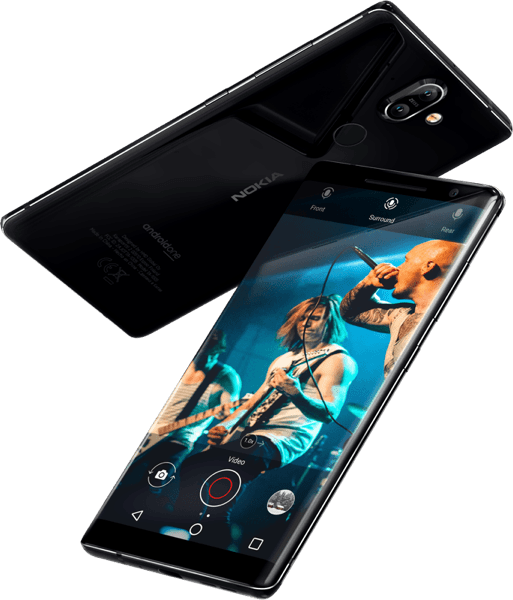
Nokia revived the Sirocco series with Nokia 8 Sirocco, the sort of successor to Nokia 8. The phone is available as a sandwich design with glass back and front with a stainless steel frame that gives the phone a premium look. Tagged as an Android One phone, it gives an edge over non-Android One devices.
At the back, it is a Corning Gorilla Glass 5 where the phone arrives in a brilliant black colour variant. Nokia has resorted to a dual-camera setup at the back located in the centre touching almost touching the top edge and has Zeiss badging right in the middle of the two sensors. There’s a third mic on the left along with a dual-tone LED flash on the right, and finally, there’s a perfectly circular optical fingerprint scanner. Although the back panel doesn’t have much, there’s a Nokia branding that is organic across smartphones but why would Nokia inscribe ‘Made in China’ in three languages at the bottom because that’s what sort of disturbing the whole premium glass back.
Moving on, the rear glass sorts of curves on the sides meeting the stainless steel frame which creates a perception that the phone is much slimmer than its actual thickness at 7.5mm. The front panel has a dual-curved design which sorts of overflows meeting the stainless steel frame creating soft edges on the extreme corners.
Talking about the functionalities, the right has volume rockers and power button with a spongy response while the left side has a single SIM slot that can be used to place a single SIM card only. On top, you would find a secondary microphone and an antenna line that’s all. The bottom has a USB Type-C port, a speaker grille, and a primary microphone. So yes, there are three mics and no headphone jack here, and that’s why the company is offering 3.5mm to USB Type-C cable which is a great gesture though.
Overall, the phone weighs 177g which isn’t light but not that heavy either. With dimensions around the soft space, I would say I didn’t notice any problem holding the phone as everything right from the notification bar to volume rockers was within my reach although those will larger hands might see it as a puny phone though.
For those who want a perspective of its size, the phone measures 140.9x73x7.5mm which makes it 7mm shorter than Samsung Galaxy S9 and 11mm shorter than LG V30.
Display
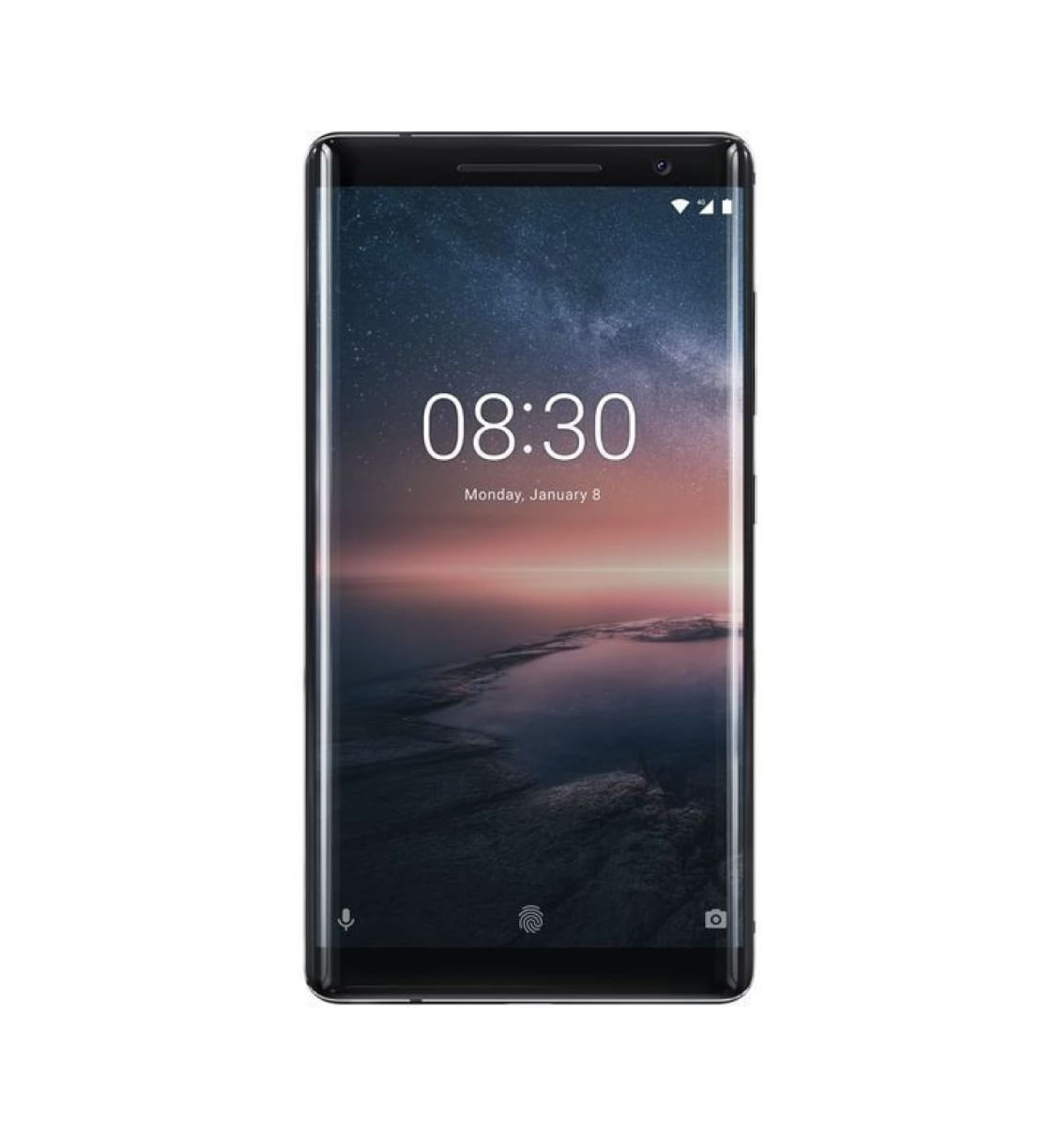
This is a flagship smartphone from Nokia and it doesn’t have a notch and that’s a relief. First up, the phone has minimal bezels around the left and right edge thanks to the dual-curved panel. The top bezel and the chin is, of course, thick but I wouldn’t see it even near to what Pixel 2 XL did.
Nokia 8 Sirocco sports a 5.5-inch pOLED panel bearing a whopping 2,650×1440 pixels resolution and a pixel density of 534PPI. This puts the phone in the forefront when it comes to exceptional displays with a higher pixel density beating even its high-end rivals. The phone has an unusual aspect ratio of 16:9 and arrives as curved on both sides which adds to its exclusivity and premium appearance. The pOLED panel comes from LG which is also a major rival to the AMOLED panels made by Samsung where although the latter has the upper hand, pOLED comes as a brilliant panel with vibrant colours and sharpness like no others.
When tested, the phone was able to achieve 400nits of brightness in manual mode while a whopping 600nits of brightness was recorded with auto-brightness enabled. This means that I had no issues viewing the screen even under the bright sunlight although Nokia 8 tends to surpass it at 703 nits with auto-brightness. When compared, Galaxy S9+ recorded the highest brightness of 631 nits while Huawei P20 Pro managed to pull of 582nits. When it comes to black, the phone does have 0.002 nits which are just a little bit more than Galaxy S9 Plus’ 0 nits when the screen is showing black on-screen.
One of the things that I noticed whilst using the Nokia 8 Sirocco is that the display has a distinct blue tint, unlike LG V30 where you could avoid the blue tint by holding the phone slightly off-axis or head-on. On any day, pOLED on Nokia 8 Sirocco is better than any LCD but it isn’t as best as the AMOLED panels.
Performance
Now there is a dilemma that I had to deal with while reviewing Nokia 8 Sirocco. No doubt the phone is super awesome but at the end of the day, it is using a flagship processor of 2017 i.e. Snapdragon 835. Although there is just a slight difference between Snapdragon 835 and the Snapdragon 845 when it was launched, it is still using a year old hardware at a price tag of the current generation of flagship phones.
Talking about the scores the phone obtained at Geekbench 4.1, it received 1,934 on a single-core test whereas OnePlus 5T scored 1,960 points and Galaxy S8 SD835 scored 1,862 points. When compared on the multi-core test, Nokia 8 Sirocco achieved a whopping 6,725 points leaving behind OnePLus 5T, Galaxy Note 8 SD835, LG V30, Google Pixel 2 XL, while losing to Galaxy Note 8 and Sony Xperia XZ2 among others. I also conducted a wholesome AnTuTu 7 test on the phone to compare it with others and found out that Nokia 8 Sirocco pulled off a sweet 209,577 points giving Note8 (sporting SD835) an edge. It also went ahead of Pixel 2 XL, Huawei P20, LG V30 among others.
On GFX 3.1 Manhattan, the device managed to score 18fps at on-screen and 34fps at 1080p offscreen (QHD resolution) where it lags even from a hoard of smartphones released during the same duration.
We played a few games on the phone to actually see how it fairs when intensive tasks are being processed and turns out the phone ran 2 to 3 hours of hardware gaming without any lag or frame drop. This is because even though the processor is a year old, it is still a flagship SoC and can bite the shit out of games like PUBGM or Modern Combat 5 or Asphalt or literally any game you can throw at it. Multi-tasking is just another trait that can pull off smoothly.
Also read: Smartphone Exchange Offers
Software
No doubt Nokia 8 Sirocco is truly a flagship device of 2018. Out of the box, the phone runs on Android 8.1 Oreo. As it is an Android One smartphone, it is guaranteed to receive two major OS updates (i.e. for two years) and three years of security patch which means the device is eligible to get Android 10 without any worry.
With that being said, the phone sticks to stock Android and the user interface reflects the same. This means there is no bloatware whatsoever and there are no heavy customizations as you would expect from a custom UI. The phone works pretty smoothly and all the actions, functions, are zippy and snappy. Using Nokia 8 Sirocco is a great experience in itself as it is a fact that you are using a phone with a great amalgamation of a powerful processor with a clean & clutter-free Android OS onboard.
Of course, Nokia 8 Sirocco does have a bunch of features that will either change or improve based on the Android version you are using or the one you will install once you get your hands on the device.
Cameras
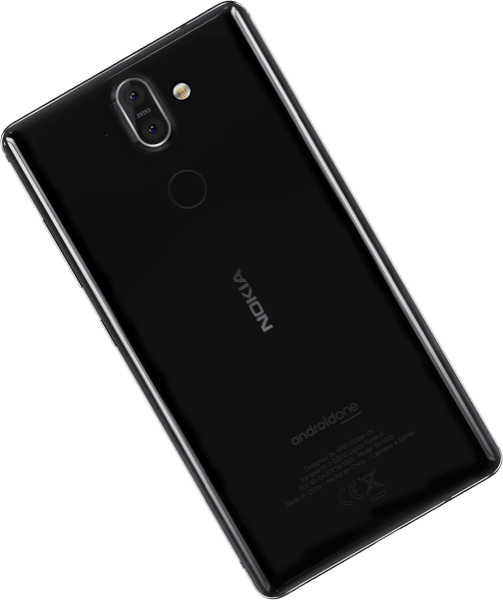
Here’s the part where we list the specifications of both front and rear camera setup of the Nokia 8 Sirocco. The front sensor is a measly 5MP sensor with an aperture of /2.0. The rear, on the other hand, has a dual-camera setup which includes a 12MP wide-angle sensor with dual pixel PDAF, 25mm focal length, and an aperture of f/1.8 along with a 13MP secondary telephoto lens with an aperture of f/2.6 and 2x optical zoom with autofocus. The rear camera setup features Zeiss optics with dual-LED dual-tone flash and HDR.
The camera app on the phone is the powerhouse of everything that you can do with the Nokia 8 Sirocco. There are a tonne of options right from single/dual/PIP, self-timer, flash, HDR, face smoothing, and to switch to the front/rear camera on the top while the bottom has a shutter button, photos on the right and flash button on the left. There’s a Pro mode with a bunch of settings that you check out giving it reminiscent of Nokia Lumia days.
Talking about the image quality, the phone does have a high-tech hardware onboard but fails to make a mark when compared to high-end devices you would find in a similar category. The 13MP telephoto sensor can use its 2x optical zoom to render results that are far better than what a digital zoom would bring onboard.
The primary 12MP sensors capture likeable images with colours that are punchy and stand-out vivid, details are preserved with sharpness and more definition to it. The letdown is the dynamic range the sensor can capture as it struggles to capture photos of high-contrast scenes. On the other hand, low-light photography is something the phone fails. You can still use the phone to take underexposed photos although you can compensate for the quality of the photos if you click on the dark area to yank up the positive exposure.
We tried Auto HDR mode and although it works, it is not comparable to its high-end rivals so there’s a bit of trial and error before you can capture the best shot especially in high-contrast scenes. The panorama shots on the phone are excellent stretching at 3,000 pixels and preserve almost all details without breaking up without two consecutive shots. The handset has a portrait mode as well with active background blur which turns out to be great but not consistent unlike you figure out a way to get the focus of the telephoto sensor and grab the best shot.
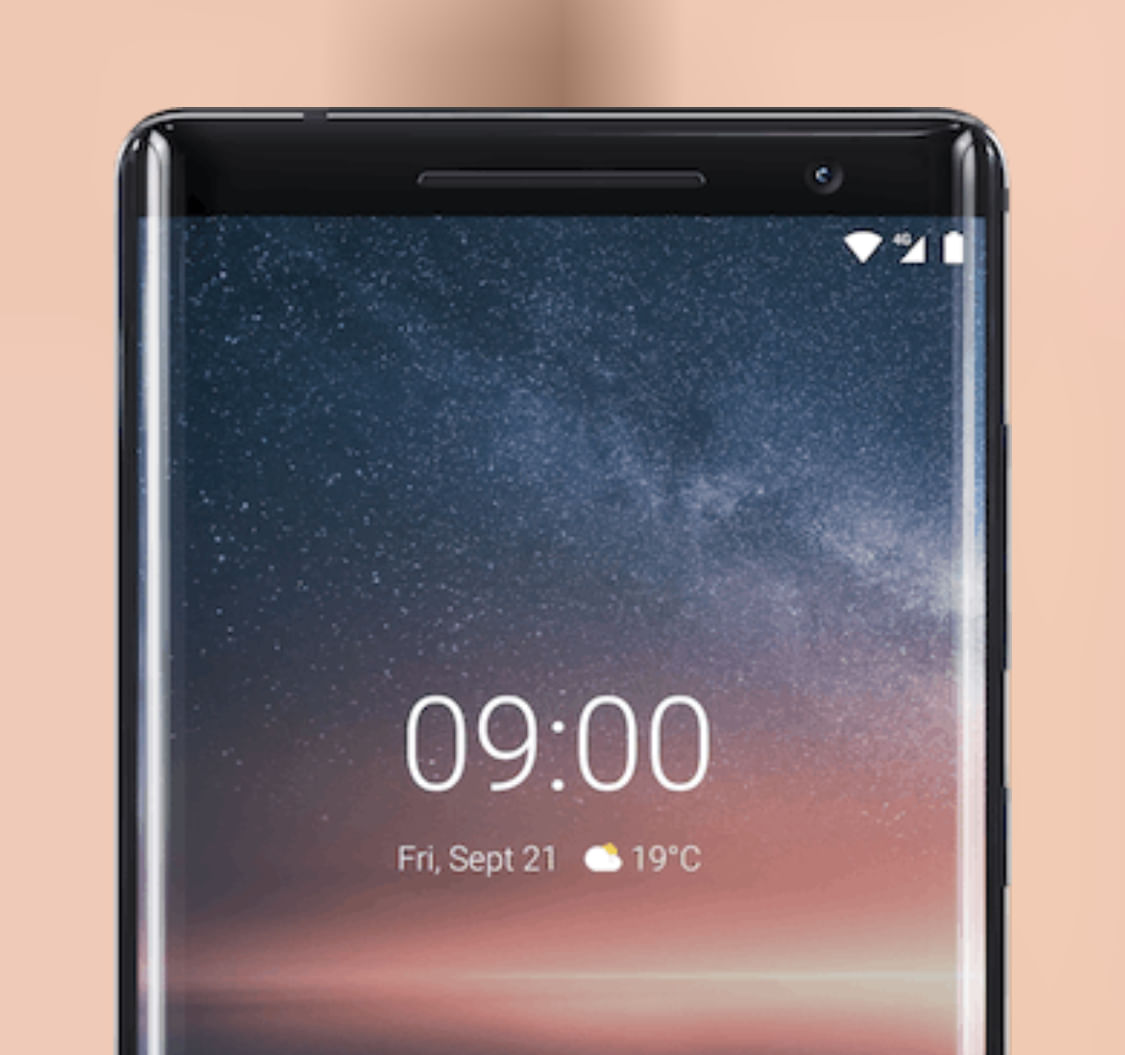
Finally, the 5MP selfie shooter may just puny but with larger pixels, the sensor is still able to take excellent photos even in low light conditions although the details around fine-tuned due to low-resolution of the photos.
Talking about the video capability, the phone can take up to 4K videos at 30fps and the same for 1080p videos with electronic stabilisation available for the latter.
Battery Life
Nokia 8 Sirocco is undoubtedly a performance beast with a smaller battery of just 3,260 mAh battery which although isn’t as small as that of Nokia 8 (3,090 mAh). But that isn’t something that will hamper Nokia 8 Sirocco’s better life and in fact, it scored 77 hours in its battery endurance rating. In individual tests, the phone was able to provide 9:20 hours of a better life in web browsing, 12:39 hours when it was used with video loop continuously and finally, it managed to stay alive for 21:08 hours of 3G talk time.
The endurance rating puts Nokia 8 Sirocco in line with that of Huawei P20 Lite, Honor 8 Pro, Sony Xperia XZ2 Premium, Vivo V7, and others. It managed to outrun Honor 5X, ZTE Nubia Z11, Samsung Galaxy E7, Huawei P10 Plus, OnePlus 6, Nokia 6.1, and a plethora of smartphones.
We had Nokia 8 Sirocco for almost a week and I found out that the battery is, in fact, worthy of giving an optimum output for at least a day. Even after we used the phone for social media, a couple of hours of calling, web browsing, and video streaming among others. All-in-all, the battery won’t step into the next day if you are indulging in heavy usage but a moderate usage can extend the battery time almost by a few hours if not more.
Furthermore, the device comes with an 18W fast charge (Quick Charge 4) that can charge the battery to almost half of its capacity or at 49% in half an hour. It would take the phone almost 1:50 hours to fully charge the 3,260 mAh battery pack. For comparison, the OnePlus 6T that was released during the same time as Nokia 8 Sirocco was shipped with 20W Dash Charge and it takes almost 1:05 hours to charge its 3,300 mAh cell.
(You can now buy refurbished smartphones with 6 month free repair warranty at Cashify. Head over to Cashify Store to know more.)
Audio and Security
It might not have the best-ever sounding loudspeaker but it sure has a calibre of a warrior when it comes to the sound quality and competes for head-on with high-end smartphones when it was released. For starters, the single bottom-firing loudspeaker produces sound readings much closer to Nokia 8 (non-Sirocco). According to the stats, it managed to score 80.7 dB on ringing and 83.6 dB on voice and overall rating were ‘Excellent’ putting it on point with Huawei Mate 10 Pro. The phone did beat some of its closest rivals like Samsung Galaxy S9+, Google Pixel 2 Xl, Huawei P20 among others.
The loudspeaker indeed produces loud sound although it does fumbles during lower registers. Audio quality on Nokia 8 Sirocco managed was equally impressive yet not perfect. The stereo quality without the headphones is much better than when I plugged in the headphones to it although the output is good but just not great.
There’s a rear-mounted fingerprint scanner which is responsive thanks to the backing by the powerful Snapdragon 835. It is also placed well in the reach for comfortable single-hand usage. The phone also received an update to bring face unlock onboard via an OTA update although I still feel the fingerprint scanner is more secure.
Pros & Cons
Pros:
Signed up in Android One program
Clean & clutter-free Android UI
High-quality all-glass build
Cons:
Strong color shifts
No 3.5mm headphone jack or microSD slot
Photo quality is not on point against rivals
Answer to this question may be subjective and totally depend on what you perceive as your daily driver. If you are looking for a high-end updated specs sheet, Nokia 8 Sirocco isn’t one of that but it does have a powerful Snapdragon 835 processor under the hood which is able to perform extrinsically leaving no stone unturned and allow you to do whatever you wish without lagging or sweating a bit.
Nokia 8 Sirocco is a phone with a smaller but dependable battery size and the UI is completely stock with zero bloatware which adds to its snappiness when you are using it. We had no problems multitasking even with more than ten apps opened and yet, the phone did perform at its capacity. As it is an Android One smartphone, it does feature two years of support to major OS updates.
The phone sports a pOLED panel which is better than LCD but not as comparable to AMOLED in some categories such as the disturbing color shifts that you’ll spot when holding the phone head-on while turning off the screen. There are three microphones but no headphone jack and neither any place for stereo speakers nor microSD slot and most interestingly, it supports just a single SIM card. Finally, the phone has a beef to stand against smartphones with SD835 and even SD845 although I wouldn’t personally recommend it to anyone but those on a budget and an affinity to Nokia can definitely check it out.

